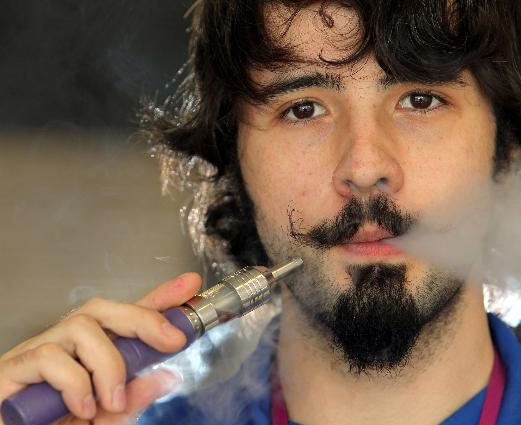Salt Lake County health study reveals big problem with inaccurate e-liquid labeling
By Wendy Leonard, Deseret News
SALT LAKE CITY — An increase in emergency room visits and calls to the local poison control hotline has Salt Lake County Health Department officials concerned about e-liquid used in battery-operated electronic cigarettes.
“You really have to treat it as a drug because it is fatal to a small child,” said Kathy Garrett, tobacco prevention and cessation manager for the Salt Lake County Health Department.
The health department, Garrett said, is encouraging users to put e-cigarettes and the “enticing candy-flavored cartridges” out of the reach of young people.
It is also seeking to pass new regulations to keep manufacturers in check.
“E-liquid is a serious poisoning threat to children,” Garrett said, adding that the United States Food and Drug Administration does not regulate e-liquid manufacturing at all. “If they drink enough of it, it can be fatal to small children.”
The Salt Lake County Health Department recently concluded its own study, where undercover workers visited all 14 vape shops and 16 of the 80 tobacco specialty stores in the county to purchase a variety of e-liquid cartridges for testing at the Center for Human Toxicology at the University of Utah.
Health officials found that 61 percent of the e-liquid cartridges collected strayed at least 10 percent from what was indicated on the labels, with either more or less nicotine content than expected.
Garrett said even the samples that listed no nicotine content had trace amounts, and at least one variety had 7.35 miligrams per milliliter.
 “Both specialty stores and vape shops are inconsistent with their labeling,” she said. “These findings support the need for local policy that requires licensing for the manufacturing of e-liquid, and also we’d like to regulate the sale of e-cigarettes to ensure safety standards that include accurate labeling and ingredients with nicotine levels.”
“Both specialty stores and vape shops are inconsistent with their labeling,” she said. “These findings support the need for local policy that requires licensing for the manufacturing of e-liquid, and also we’d like to regulate the sale of e-cigarettes to ensure safety standards that include accurate labeling and ingredients with nicotine levels.”
The Utah Legislature has yet to pass legislation that would govern any part of the surging electronic cigarette industry in the state, and the federal government is just beginning to assess the issues surrounding production and sales.
Last year, the number of adults using e-cigarettes topped 40 million nationwide, an increase of more than 620 percent over the previous year. The number of children and teens who use them is on the rise as well, health officials said.
The Utah Department of Health reports that 4.8 percent of adults and 5.8 percent of teens routinely use the nicotine vapor product, according to 2013 data, the latest available. The rate of regular e-cigarette use in Utah more than doubled from 2012 to 2013, and it tripled among Utah students from 2011 to 2013.
Without state or federal laws to govern e-cigarette and e-liquid production and sales, local jurisdictions have taken it upon themselves to protect Utahns, and Garrett said Salt Lake County will be the next to enact a policy.
She expects the board to vote on something as early as next month. If a policy is adopted, the health department would be responsible for enforcing it through random inspections and monitoring of local manufacturing activity.
Garrett said there are several manufacturers in the valley that the health department would love to keep its eye on to make sure they’re following the rules.
“Inaccurate labeling is alarming because consumers don’t know exactly what they’re taking into their bodies or at what level,” she said. “It’s also a real concern for poison control and emergency room staff, who don’t know if the labeled amount of nicotine in a bottle a child has ingested is accurate.”
Nicotine in e-liquids was to blame for 131 calls to theUtah Poison Control Center in 2014, according to the health department.
Health officials also reviewed the availability of child-proof lids for e-liquid cartridges and found that more than a quarter of the samples containing a listed amount of nicotine did not have safety caps.
There are 12 local health departments in the state, and at least Davis, Weber and Utah counties have adopted regulations, while Summit County has an ordinance, but Garrett said most if not all departments would be on board for statewide legislation, which may be presented in the upcoming session of the Utah Legislature.
In the meantime, Garrett said, “if you have e-cigarettes of e-juice lying around, lock it up where a child can’t get into it. Just like any medication, you should lock it up and keep it out of reach.”
http://www.deseretnews.com/article/865619211/Salt-Lake-County-health-study-reveals-big-problem-with-inaccurate-e-liquid-labeling.html?pg=all

